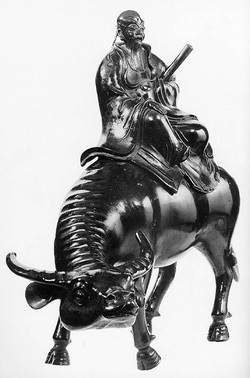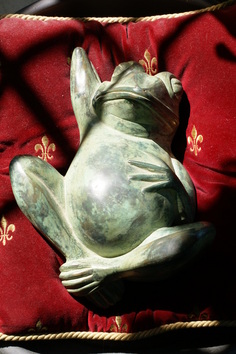
We Europeans, should learn some subtlety from the Chinese before they come to teach us; our technical culture fell into the strange belief that what we cannot grab does not count so that we can safely neglect it; even as we know well that there is more than what meets the eye.
Are we still of such stuff as dreams are made on? Not anymore; we are trained with reason to sweep away everything which is not manifest, material and explicit; the non action and the absent are too elusive to be serious; as for the potential of the not yet being, it is too protean for statistics. Impressions and hunches based on lack-of-signs are baseless superstition; common-sense or good-sense about what is missing is folklore. As for imagination, it is for arts and entertainment.
This attitude is born from the faith that everything is determined by matter, by vectors...and by money; the rest - spirit, mind, feeling, memory, intuition, beliefs, dreams, will, even who we are - are mere glittering, not to be trusted.
*
There is hope though; quality intellect can be educated to account with intangibles and negative events. We can learn from the East to be haiku poets, to use the present and the absent, the precise and the subtle, what is and what we want, at the same time – to understand, to decide and to do. This needs not remain Chinese for us.
There are alternatives to our standard model of reasoning, ways in which you acquire a rich non-linear movement of mind complementary to analysis and explication:
You emulate the understanding style of Lao Tzu, you imitate the Tao of water, you check the rules of Sun Tzu, you chance the ruses of the 36 Strategies; the same way you refine your mind with the Sufi turns of mind of Nasreddin Hodja, the myriad recipes of the folk sayings of the world, the ever-returning destinies people live according to the archetypes of the great myths, religions and masterpieces of the world literature canons.
We fill our mental coffers not only with ideas and procedures but also with forms, shapes, mental tools and choices of emotion, skill of looking and understanding, angles and points of view for looking at the World, balances for weighing the importance, the goodness lenses for beauty and ugly.
If you feel this is interesting, click here.

 RSS Feed
RSS Feed